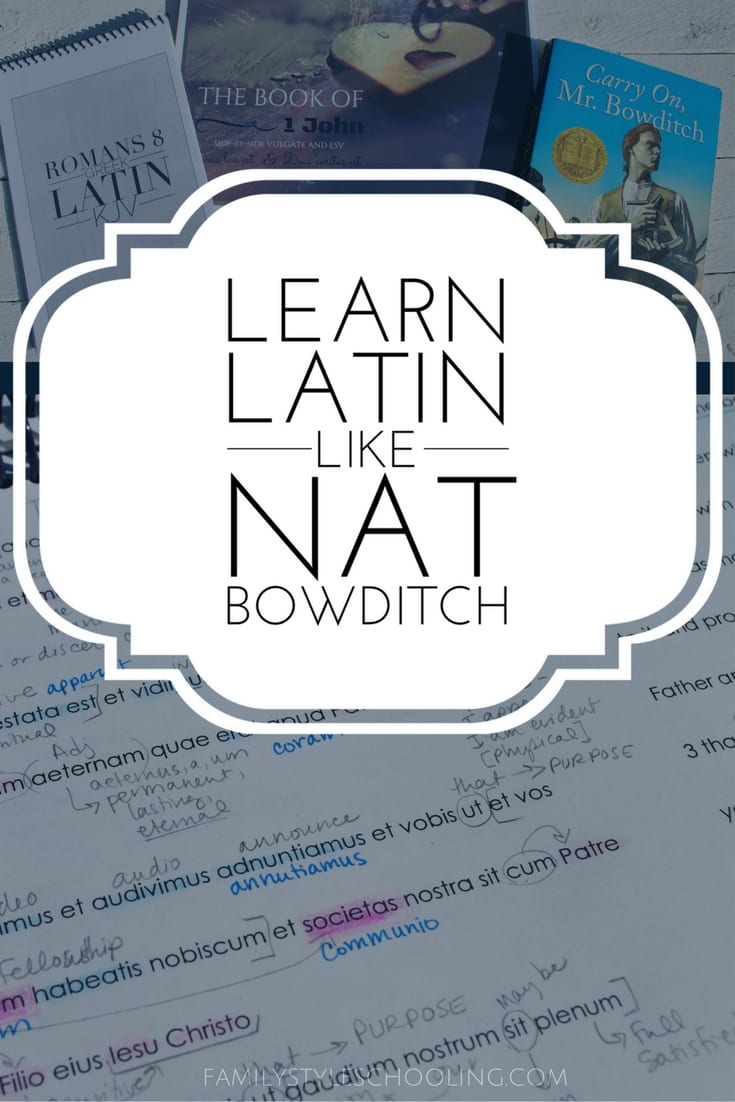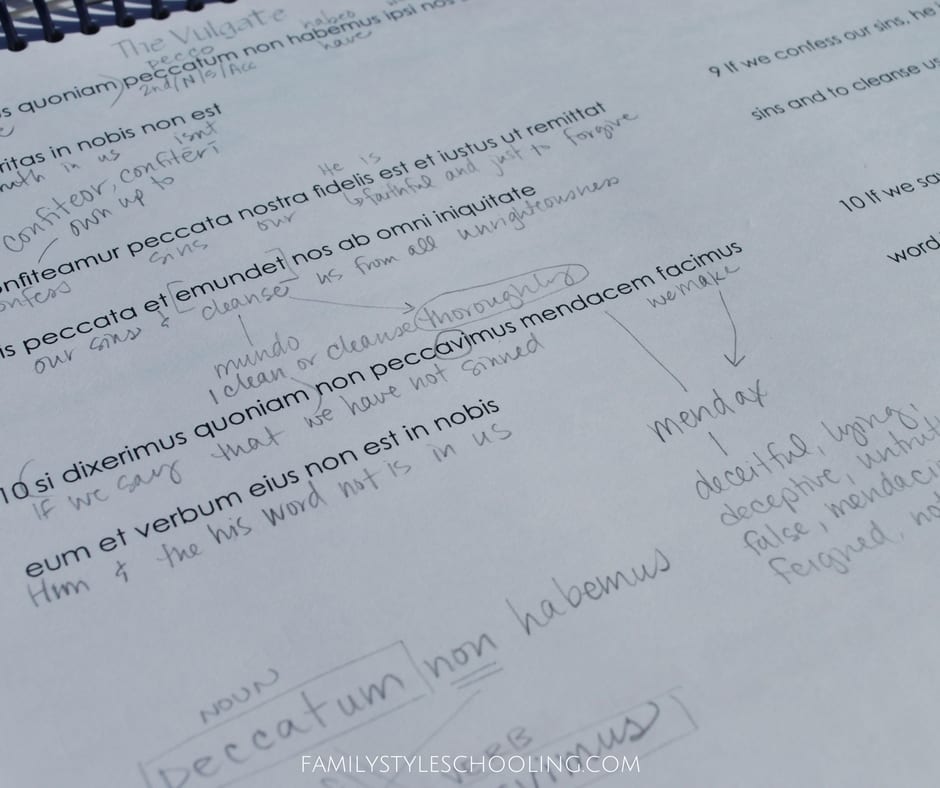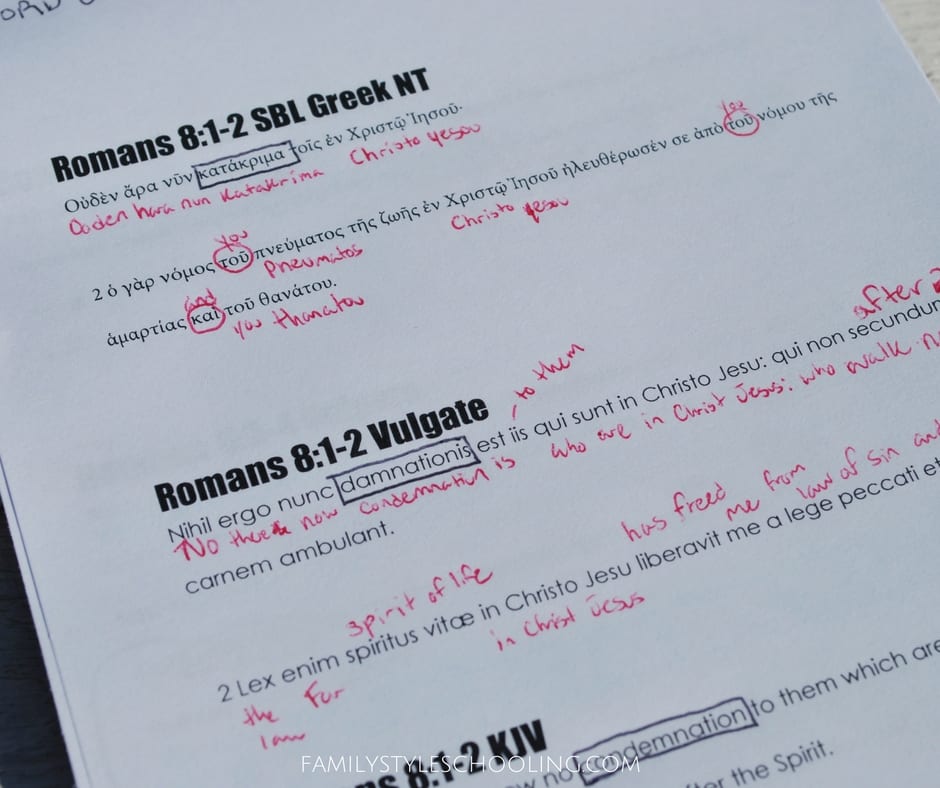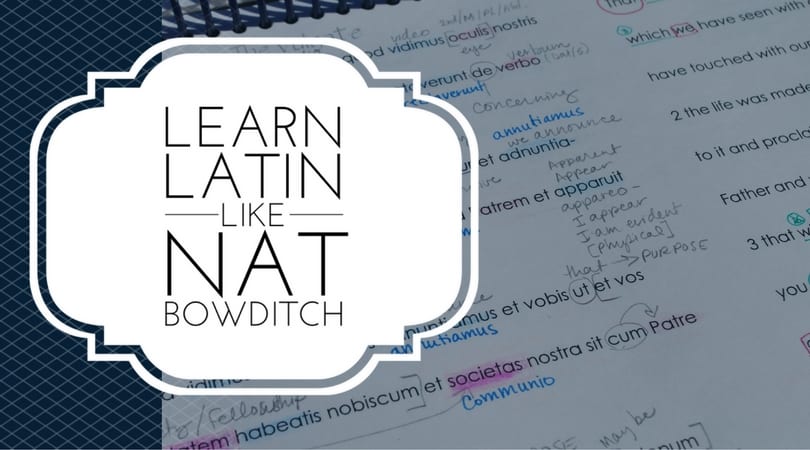Learning Latin Like Nat Bowditch with Scripture
We've been reading through Carry On, Mr. Bowditch again this year together as a family, and once again I'm struck by Nat's approach to learning Latin. I just love this book. Latin used to be the language scientists used to communicate their ideas.

If you haven't read Carry On, Mr. Bowditch, you really need to add it to your must-read list. Without giving away the whole story, I'll share a little bit about this story based on the life of Nathaniel Bowditch.
Although Nat's future was bright and he could have gone to Harvard, his family's financial situation was strained, so he had to leave school at ten years old. By twelve, he was sold as an indentured slave to a ship chandler, and his hopes of Harvard were dashed. Instead of accepting his fate, he continued to learn by reading any book he could get his hands on and writing down the information in journals.
Lifelong Learners
We tend to blame our learning struggles on a bad teacher, a boring textbook, or our lack of time. Nat didn't have the opportunities that modern learners have, yet that didn't stop him.
He fell in love with the study of astronomy. While looking for more information on the subject, he discovered that the best book to read was Newton's Principia. The only downside to this text was that it was in Latin, and he didn't know any Latin.
Can I Learn Latin?
Instead of giving up, Nat Bowditch did the only other logical option: he set out to learn Latin. Thankfully he had a wonderful mentor that gave him resources. When he asked about what he needed to learn Latin, his friend gave him:
- A Latin grammar
- A Latin dictionary
- A New Testament in Latin
Since Nat was familiar with the Bible, he could learn the principles by studying the Latin for his favorite scriptures.
Learning to Observe Language
Once you become familiar with how Latin works, which is found in your grammar, you can use your observation skills to identify the different parts of speech and discover how they work. The fascinating thing about Latin is that nouns have a noun-ish quality about them, and verbs have a verb-ish quality about them. If you know what the conjugations look like, you can find them in any passage you're reading.
Last year in Challenge I, we took the book of 1 John and worked through it by observing the language. It was a great exercise because it brought together all levels of Latin students. Even if you don't know much Latin, you can see how the words in English derive from Latin.

Learning Latin Like Nat
Even though we have some amazing Latin curricula at our disposal, it's fun to go back to the basics of language and learn Latin like Nat.
You can use these guides in morning time, or just as a personal way to stretch your language muscles. I've created a Latin/English workbook covering 1 John, and a Greek/Latin/English workbook covering Romans 8. Each has ample blank space for making notes and comparing languages.

Looking to Learn like Nat Bowditch?
Join The Rooted Minds Learning Community for these resources—included in your membership! On Rooted Minds, you'll find more than just resources, but a growing community of people dedicated to learning like Nat. You'll find all of our Latin with Andy resources, and an expanding collection of learning topics such as music, art, Biblical Greek, homeschooling, and more! Click here to learn more about joining our community. We'd love to have you.

I hope you find joy in pursuing Latin like Nat Bowditch. You'll come to appreciate the diversity of translations if nothing else!
Betsy Strauss is an unexpected homeschooler, mother of three, who is in a relationship with a sweet man for life. She loves reading books, drinking coffee, and learning anything with her kids.



Can you give me a sample or describe what the Romans 8 book contains? I have not studied Latin myself and would like to learn with my kids (7, 8, 13, 16). I love how Nat Bowditch approached this and felt happy to find your post on pinterest!
Exciting! The Romans 8 printable goes a few verses at a time, displaying 1) the original Greek 2) the Vulgate and 3) the KJV all side-by-side. It goes all the way through Romans 8. Grab a grammar book and make observations together!